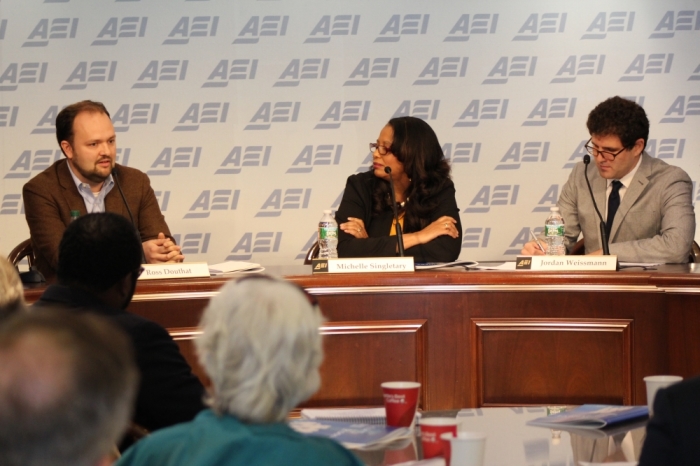Should Out-of-Wedlock Pregnancies Be Stigmatized?

WASHINGTON — To encourage young people to delay pregnancies until they are married, should some stigma be attached to out-of-wedlock births? This question was debated Tuesday at an American Enterprise Institute panel discussion.
The panel was presenting a report on family structure and economic success. That report found that those who get married and stay married enjoy more personal well-being and economic success, and children raised by their biological mother and father have more positive outcomes than children raised in broken homes.
Young people who make a set of wise choices — getting an education, getting married and staying married, and waiting until marriage to have children — reap tremendous benefits, regardless of other factors, such as gender, race, ethnicity and socioeconomic status, the report demonstrated.
Ross Douthat, a conservative New York Times columnist, argued, though, that young people would not respond only to simple utilitarian arguments (if you follow this advice you will make more money); there also needs to be some form of stigma attached to making the unwise choice to get pregnant, or to impregnate someone, before getting married. Douthat was not an author of the report but was on the panel as a discussant.
"I think it isn't enough to imagine a cultural consensus that just makes a utilitarian case. That cultural consensus would have to involve some level of aspirational idealism around the two-parent monogamous family and also some form of stigma around people who deviate from or don't live up to that norm," Douthat said.
Jordan Weissman, senior business and economics correspondent for Slate, disagreed.
"I worry when I hear the word 'stigma,'" he said. "Partly politically, because that has led to so much of the contentiousness about this. Stigmatizing single mothers is what led to the 'welfare queen' debate. ... Stigma is a dangerous word."
Stigmatizing out-of-wedlock births is not even necessary, Weissman added, because as long as young people are provided birth control, out-of-wedlock births would be reduced.
"You don't want to underestimate human folly when you're making policy," he said. "That's one of the reasons contraceptives seems like such a good option, you don't have to change the entire culture to just educate people about IUD's or about how to take the pill appropriately."
Douthat agreed that a widespread cultural shift in the United States appears unlikely at the moment, but maintained that stigmatization is more effective than simple utilitarian arguments.
A culture that stigmatized out-of-wedlock child bearing, he added, is "ultimately more humane than the sexual landscape we have now. More humane for the people who want to form relationships. More humane for the children who come out of those relationships. And, I think it is compatible with a basic view of gender equality."
Watch the exchange below:




























